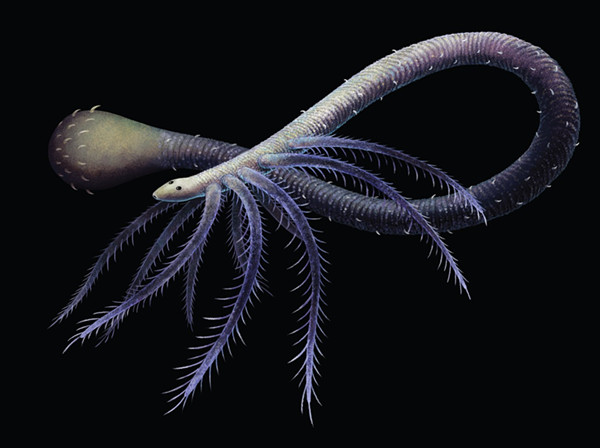New YNU study shows evolution over 500 million years ago

An artist's impression of the Facivermis, which lived 518 million years ago. [Photo/ynu.edu.cn]
A paper entitled A Tube-Dwelling Early Cambrian Lobopodian was published by leading international academic journal Current Biology recently, which has shone more light on evolution hundreds of millions of years ago.
It was on a study conducted by researchers from the Yunnan Key Laboratory for Palaeobiology at Yunnan University, the University of Exeter and the Natural History Museum in the United Kingdom.
YNU officials said the paper suggested that the Facivermis -- a worm-like creature living at the bottom of the ocean 518 million years ago -- was a lobopodian, a small and segmented animal, which had evolved to lose its rear legs after adopting a sedentary lifestyle.
Researchers said that it is the earliest example of adaptive degradation of tissues and organs in the history of animal evolution.
Facivermis was firstly found and named by researcher Hou Xianguang in 1989, and it had a long, tapered body, with five pairs of spindly legs near its narrow head and a bulbous tail that sat inside a tube anchored to the seabed.
Due to its extraordinary shape, there has been controversy among paleontologists concerning the taxonomic location and evolutionary significance of this species for more than 30 years.
Previous studies thought that it was a link animal, a tentacle crown animal, a tongue-shaped animal, or a transitional group between legless worms and pan-arthropods with legs.
New studies have suggested that it was a lobopodian, also known as “legged worms”.
Experts said that the finding proves that even at such an early stage of animal evolution in the Cambrian period, examples of tissues and organs adaptive degradation took place.
They said the latest research has further demonstrated the complexity of the Cambrian marine ecosystem.




